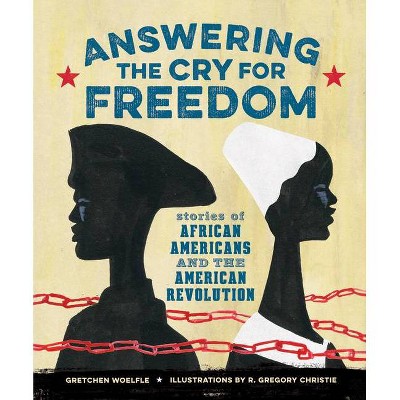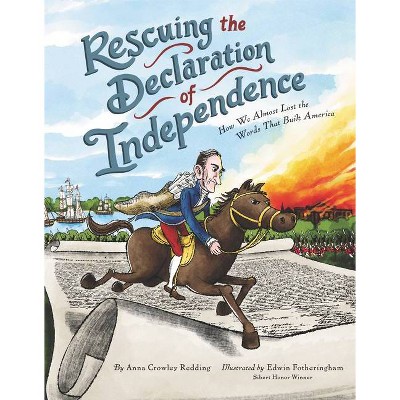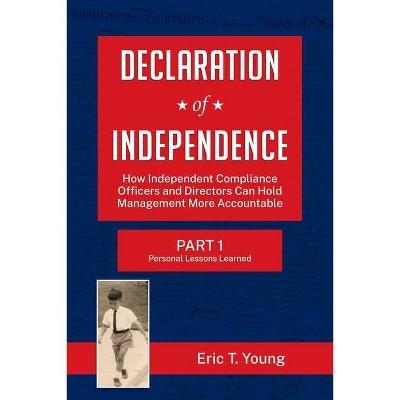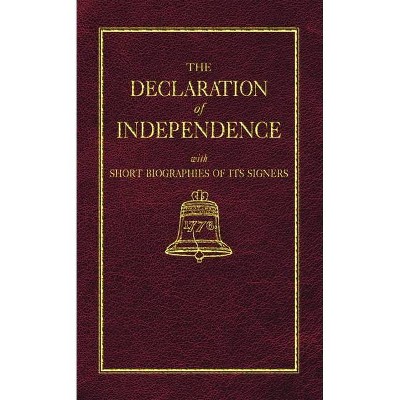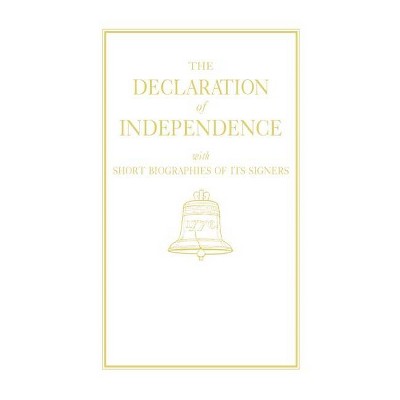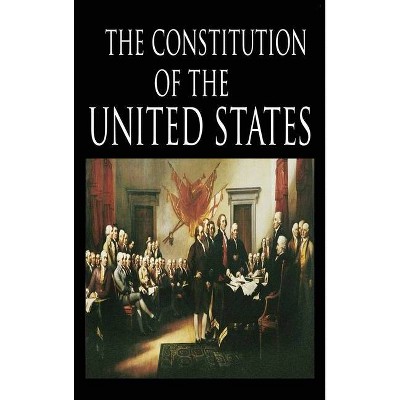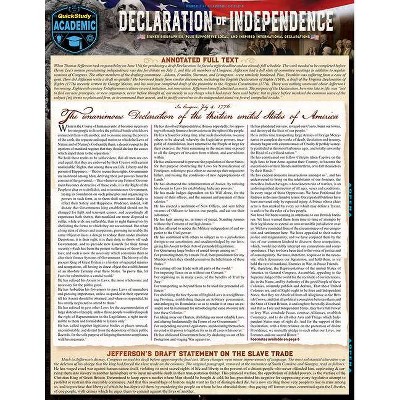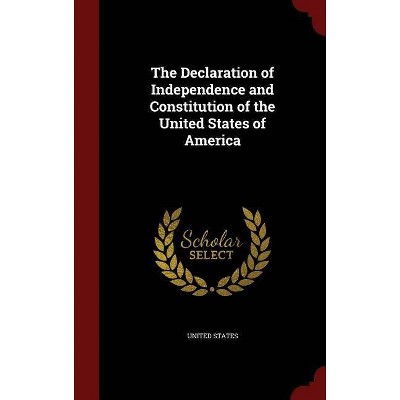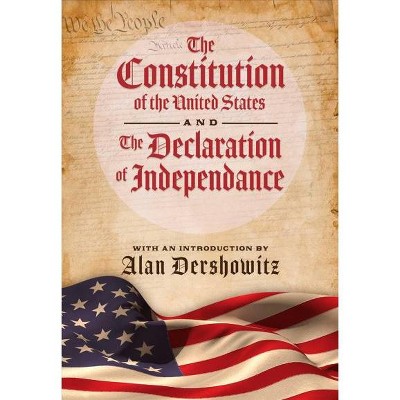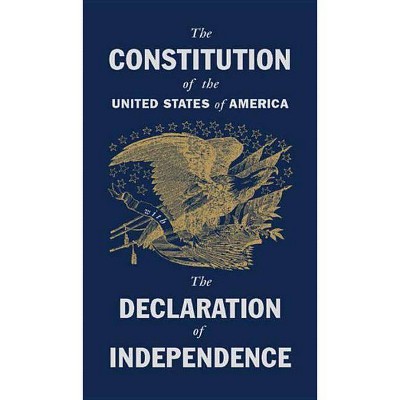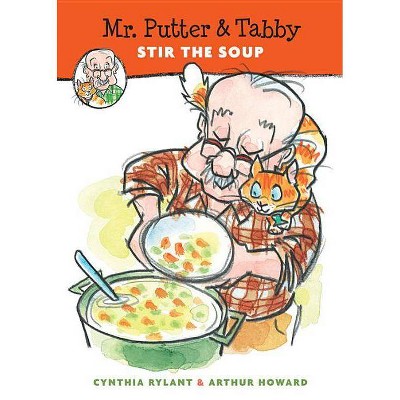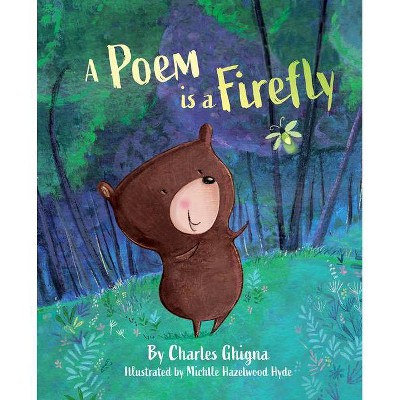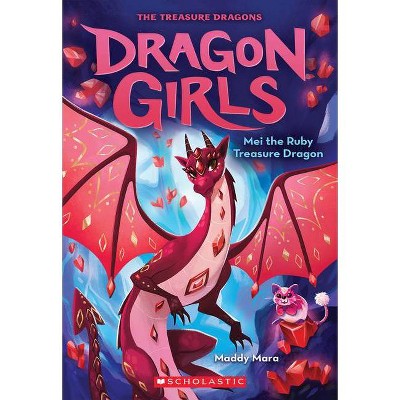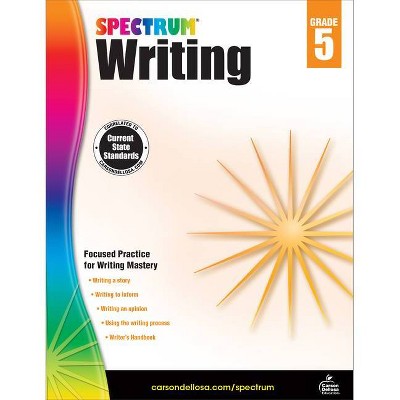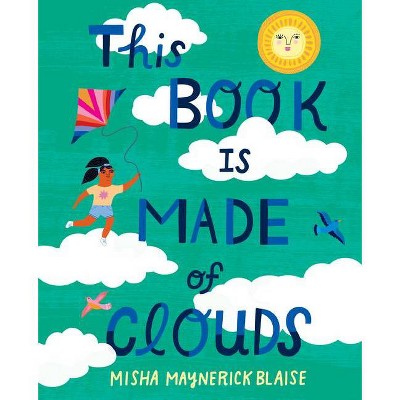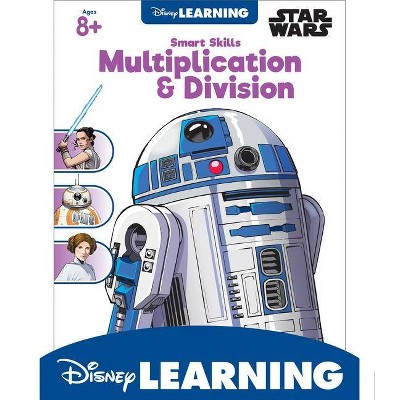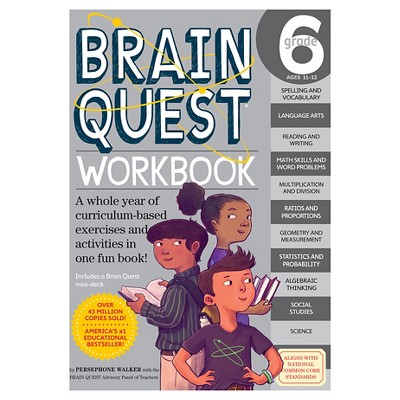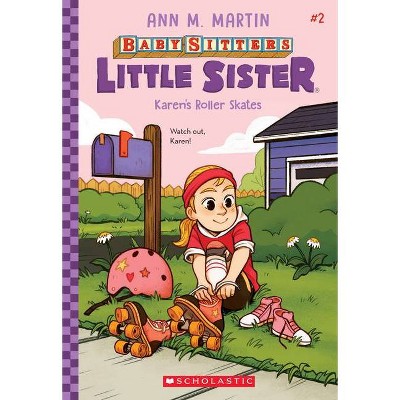Mumbet's Declaration of Independence - by Gretchen Woelfle (Hardcover)
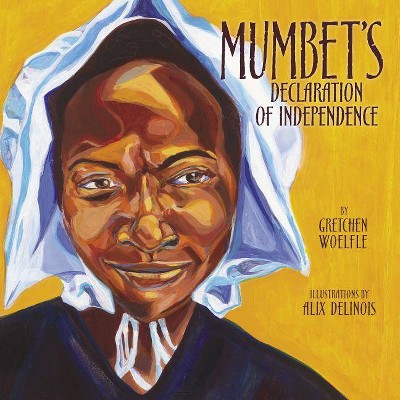
Similar Products
Products of same category from the store
AllProduct info
<p/><br></br><p><b> About the Book </b></p></br></br>"All men are born free and equal." Everybody knows about the Founding Fathers and the Declaration of Independence in 1776. But the founders weren't the only ones who believed that everyone had a right to freedom. Mumbet, a Massachusetts slave, believed it too. She longed to be free, but how? Would anyone help her in her fight for freedom? Could she win against her owner, the richest man in town? Mumbet was determined to try. Mumbet's Declaration of Independence tells her story for the first time in a picture book biography, and her brave actions set a milestone on the road toward ending slavery in the United States.<p/><br></br><p><b> Book Synopsis </b></p></br></br><p><strong>All men are born free and equal. <br /> </strong> <br /> Everybody knows about the Founding Fathers and the Declaration of Independence in 1776. But the founders weren't the only ones who believed that everyone had a right to freedom. Mumbet, a Massachusetts enslaved person, believed it too. She longed to be free, but how? Would anyone help her in her fight for freedom? Could she win against her owner, the richest man in town? <br /> <br /> Mumbet was determined to try. <br /> <br /> <em>Mumbet's Declaration of Independence</em> tells her story for the first time in a picture book biography, and her brave actions set a milestone on the road toward ending slavery in the United States.</p> <p>The case is fascinating, emphasizing the destructive irony at the heart of the birth of America and making Mumbet an active and savvy architect of her own release, and this is likely to spur much discussion. --<em>The Bulletin of the Center for Children's </em>Books</p> </p><p/><br></br><p><b> Review Quotes </b></p></br></br><br><p>'Mumbet didn't have a last name because she was a slave.' So begins Gretchen Woelfle's 'Mumbet's Declaration of Independence, ' which tells the story of a remarkable figure in American colonial history. Known as Bett or Betty, although some children 'fondly called her Mom Bett or Mumbet, ' she successfully sued her owner, John Ashley, 'the richest man in Berkshire County, Mass., ' for her emancipation, and once liberated chose to name herself Elizabeth Freeman.</p> <p><strong>Alix Delinois's illustrations beautifully balance the intensity of this history lesson.</strong> The opening pages feature seven portraits of Mumbet in different states of thought and emotion. Pensive, determined and graceful, she wears a white bonnet (outlined by bright reds and yellows) in poses that highlight the complex and dynamic human being she must have been. Having overheard discussions of the Massachusetts Constitution of 1780, which states that 'All men are born free and equal, ' Mumbet enlists the help of an attorney, Theodore Sedgwick (father of Catharine Maria Sedgwick, who would later record Mumbet's story), to challenge her enslavement. 'I am not a dumb creature, ' Mumbet says. 'I deserve my freedom.' Two years after she brought her case, a judge declared slavery illegal in the state of Massachusetts, which in turn led to the freeing of 5,000 slaves.</p> <p>Woelfle's narrative skillfully keeps Mumbet at center, focusing on Mumbet's struggles against her mistress, Mrs. Ashley, who did not have the right to own property yet 'owned the sharpest tongue in town.' Her verbal and physical cruelty toward Mumbet and Mumbet's daughter, Lizzy, challenges the common belief that white women were passive spectators of slavery's violence and the sentimental allies of slaves. Mumbet, a protective mother, is so eager for her own and her daughter's freedom that she uses the Revolution's egalitarian rhetoric to declare their independence. <strong>Woelfle's narrative and her appended notes and references offer opportunities for discussing nuances in the history of American slavery.</strong> --<em>The </em><em>New York Times Book Review</em></p>-- "Newspaper" (2/14/2014 12:00:00 AM)<br><br><p>A slave named Mumbet, who successfully sued for her own freedom in 1781 Massachusetts, is the subject of this powerfully told biography. Suffering under a cruel mistress, Mumbet seeks solace in the freely running rivers of the landscape and in her own mind. Woelfle draws clear parallels between the Massachusetts colonists' discontent and the freedom Mumbet craves: 'The King means to take away our rights! one man shouted. Do I have rights? wondered Mumbet.' <strong>Delinois's thick layers of paint and vibrant palette infuse even the story's upsetting moments with hopefulness, and Mumbet herself glows with determination and integrity.</strong> An author's note addresses how many details of Mumbet's life were lost to history, yet her story stands as a potent reminder that the freedoms that accompanied the American Revolution left many behind. --starred, <em>Publishers Weekly</em></p>-- "Journal" (12/2/2013 12:00:00 AM)<br><br><p>Elizabeth Freeman, known as 'Mumbet, ' was an African American slave in 18th-century Massachusetts. The Massachusetts Constitution of 1780 included the provision, 'All men are born free and equal, and have certain natural, essential, and unalienable rights.' Using that document as a basis, Mumbet, with the support of a young lawyer named Theodore Sedgwick, challenged the legality of slavery. As a result of their efforts, in 1783 slavery was declared unconstitutional and 5000 slaves in the state gained freedom. <strong>Vividly colored illustrations reflect the generally hopeful tone of the story, while bold compositions and thickly layered paint suggest folk art. Freeman's strength of character is reflected in her determined facial expressions and strong stance.</strong> While her story is highly inspiring, details about her life are sketchy; information comes primarily from an account written by Catharine Maria Sedgwick, the daughter of Theodore. While this picture book is presented as nonfiction, the story itself is highly fictionalized. An author's note explains what is known about Mumbet and reminds readers that 'History is fluid.' --<em>School Library Journal</em></p>-- "Journal" (1/1/2014 12:00:00 AM)<br><br><p>It's easy to forget that people in the North owned slaves, or that five thousand slaves lived in Massachusetts before slavery was declared unconstitutional there in 1783, meaning that many of the colonists fighting for freedom from English rule were holding slaves at the time of the War for Independence. One such enslaved woman was Mumbet, a 'servant for life' to the Ashley family. Talk around the Ashley table about freedom from England led Mumbet to a lawyer in town and then to her eventual freedom--and to the freeing of all slaves in Massachusetts. <strong>Woelfle keeps the spotlight on Mumbet and brings her to life as a strong, smart person. Using a vibrant acrylic palette, Delinois highlights the brilliant greens and blues of the Berkshires setting and allows the light to play on Mumbet's face to show both her humor and strength.</strong> Cruel Mrs. Ashley receives her own treatment; her face is nearly always contorted in anger. <strong>Though many have not heard the story of Mumbet before, no one who reads it now will ever forget it.</strong> The fascinating author's note and bibliography will make curious readers wonder why Mumbet's story is not better known. --<em>The Horn Book Magazine</em></p>-- "Journal" (5/1/2014 12:00:00 AM)<br><br><p>Mumbet was owned by Colonel John Ashley, but she longed to be free. As the Founding Fathers worked on the Declaration of Independence, Mumbet overheard the men discussing the phrase, 'free and independent.' Seven years later, when Mumbet slipped into the back of a town hall meeting about the Massachusetts Constitution, she heard, 'All men are born free and equal'--and she decided to test the new law. So she visited a young lawyer who was so impressed with her determination that he decided to take her case. Surprisingly, Mumbet won freedom for herself and her daughter, and her case led to slavery being declared unconstitutional in Massachusetts in 1783. Mumbet's still largely unknown story came to light through letters and journal entries written by her lawyer's daughter. <strong>Delinois' minimalist but highly evocative acrylic illustrations add depth to the sensitive, inspiring text. A great addition to picture-book collections of American history.</strong> --<em>Booklist</em></p>-- "Journal" (5/1/2014 12:00:00 AM)<br><br><p>Mumbet, later known as Elizabeth Freeman, was born a slave in Colonial America. When the Massachusetts Constitution declared that 'All men are born free and equal, ' Mumbet set out to test the law in the courts. Finding a fair-minded lawyer to represent her in court, she manages to successfully secure her and her daughter's freedom. <strong>This book opens many avenues for discussion, including history, civil rights, the power and interpretation of the law, and imagery and artistry as conveyed by the rich drawings and Mumbet's observations of freedom</strong> displayed in the rugged mountains, rolling rivers, and breaking ice. Author's notes, selected bibliography, and further reading provide more information about this inspiring piece of American history. --<em>Library Media Connection</em></p>-- "Journal" (11/1/2014 12:00:00 AM)<br><br><p>This nonfiction picture book tells the story of Mumbet, later Elizabeth Freeman, a Massachusetts slave who was inspired by the American fight for freedom to sue her owner, Colonel Ashley, for her freedom--and won. The book incorporates historical incident, such as Mumbet's defense of her daughter against her mistress' blows, while adding an artistic (if occasionally stilted) fictionalized touch in Mumbet's recurring use of natural imagery; the story also foregrounds the inarguable contradiction between the growing discourse about liberty, especially the Massachusetts Constitution on which Mumbet bases her case, and the lot of the enslaved who labored for many ardent freedom fighters. <strong>The case is fascinating, emphasizing the destructive irony at the heart of the birth of America and making Mumbet an active and savvy architect of her own release, and this is likely to spur much discussion.</strong> Delinois' thickly painted, expressionist illustrations suggest Gregory Christie at times in the faces; however, their saturated colors are often garish and poses frequently stiff. Additionally, the focus on sweeping planes of color leaves details sometimes unarticulated and makes period housing and clothes improbably dazzling and tidy. End matter considerably enriches the narrative, with details about Mumbet's post-case life with her lawyer's family, notes on things still unknown about Mumbet, and a telling paragraph about the changes over the years in tours at the Ashley House, which now prominently discuss Mumbet and her case, in addition to a bibliography and website list. --<em>The Bulletin of the Center for Children's Books</em></p>-- "Journal" (5/1/2014 12:00:00 AM)<br><br><p>With the words of Massachusetts colonial rebels ringing in her ears, a slave determines to win her freedom.<br /> In 1780, Mumbet heard the words of the new Massachusetts constitution, including its declaration of freedom and equality. With the help of a young lawyer, she went to court and the following year, won her freedom, becoming Elizabeth Freeman. Slavery was declared illegal and subsequently outlawed in the state. Woelfle writes with fervor as she describes Mumbet's life in the household of John Ashley, a rich landowner and businessman who hosted protest meetings against British taxation. His wife was abrasive and abusive, striking out with a coal shovel at a young girl, possibly Mumbet's daughter. Mumbet deflected the blow and regarded the wound as 'her badge of bravery.' Ironically, the lawyer who took her case, Theodore Sedgwick, had attended John Ashley's meetings. <strong>Delinois' full-bleed paintings are heroic in scale, richly textured and vibrant.</strong> Typography becomes part of the page design as the font increases when the text mentions freedom. Another slave in the Ashley household was named in the court case, but Woelfle, keeping her young audience in mind, keeps it simple, wisely focusing on Mumbet.<br /> <strong>A life devoted to freedom and dignity, worthy of praise and remembrance.</strong> --<em>Kirkus Reviews</em></p>-- "Journal" (11/1/2013 12:00:00 AM)<br>
Price History
Price Archive shows prices from various stores, lets you see history and find the cheapest. There is no actual sale on the website. For all support, inquiry and suggestion messages communication@pricearchive.us
